JC Ryle
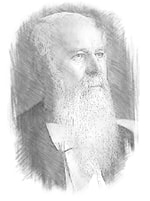
J. C. Ryle (born May 10, 1816) went on to become the first Anglican Bishop of Liverpool, where he was installed as such on the 10th April 1880. His term as Bishop lasted until 1st March 1900. He died, aged 84, in Lowestoft, Suffolk, on 10th June 1900. He is buried at All Saints Church, Childwall, Liverpool.
J. C. Ryle (born May 10, 1816) went on to become the first Anglican Bishop of Liverpool, where he was installed as such on the 10th April 1880. His term as Bishop lasted until 1st March 1900. He died, aged 84, in Lowestoft, Suffolk, on 10th June 1900. He is buried at All Saints Church, Childwall, Liverpool.
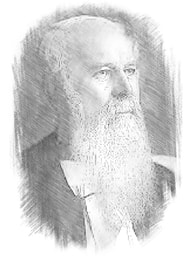 JC Ryle
JC Ryle
In these verses the great Head of the Church winds up His first charge to those whom He sends forth to make known His Gospel. He declares three great truths, which form a fitting conclusion to the whole discourse.
In the first place, He bids us remember that His Gospel will not cause peace and agreement wherever it comes. “I didn’t come to send peace, but a sword.” The object of His first coming on earth was not to set up a millennial kingdom in which all would be of one mind, but to bring in the Gospel, which would lead to strifes and divisions. We have no right to be surprised, if we see this continually fulfilled. We are not to think it strange, if the Gospel rends asunder families, and causes estrangement between the nearest relations. It is sure to do so in many cases, because of the deep corruption of man’s heart. So long as one man believes, and another remains unbelieving–so long as one is resolved to keep his sins, and another desirous to give them up, the result of the preaching of the Gospel must needs be division. For this the Gospel is not to blame, but the heart of man.
There is a deep truth in all this, which is constantly forgotten and overlooked. Many talk vaguely about unity, and harmony, and peace in the Church of Christ, as if they were things that we ought always to expect, and for the sake of which everything ought to be sacrificed. Such people would do well to remember the words of our Lord. No doubt unity and peace are mighty blessings. We ought to seek them, pray for them, and give up everything in order to obtain them, excepting truth and a good conscience. But it is an idle dream to suppose that the churches of Christ will enjoy much of unity and peace before the millennium comes.
In the second place, our Lord tells us that true Christians must make up their minds to trouble in this world. Whether we are ministers or hearers, whether we teach or are taught, it makes little difference. We must carry “a cross.” We must be content to lose even life itself for Christ’s sake. We must submit to the loss of man’s favor, we must endure hardships, we must deny ourselves in many things, or we shall never reach heaven at last. So long as the world, the devil, and our own hearts, are what they are, these things must be so. We shall find it most useful to remember this lesson ourselves, and to impress it upon others. Few things do so much harm in religion as exaggerated expectations. People look for a degree of worldly comfort in Christ’s service which they have no right to expect, and not finding what they look for, are tempted to give up religion in disgust. Happy is he who thoroughly understands, that though Christianity holds out a crown in the end, it brings also a cross in the way.
In the last place, our Lord cheers us by saying that the least service done to those who work in His cause is observed and rewarded of God. He that gives a believer so little as “a cup of cold water to drink in the name of a disciple, will in no way lose his reward.”
There is something very beautiful in this promise. It teaches us that the eyes of the great Master are ever upon those who labor for him, and try to do good. They seem perhaps to work on unnoticed and unregarded. The proceedings of preachers, and missionaries, and teachers, and visitors of the poor, may appear very trifling and insignificant, compared to the movements of kings and parliaments, of armies and of statesmen. But they are not insignificant in the eyes of God. He takes notice who opposes His servants, and who helps them. He observes who is kind to them, as Lydia was to Paul–and who throws difficulties in their way, as Diotrephes did to John. All their daily experience is recorded, as they labor on in His harvest. All is written down in the great book of His remembrance, and will be brought to light at the last day. The chief butler forgot Joseph, when he was restored to his place. But the Lord Jesus never forgets any of His people. He will say to many who little expect it, in the resurrection morning, “I was hungry, and you gave me food to eat. I was thirsty, and you gave me drink.” (Matt. 25:35.)
Let us ask ourselves, as we close the chapter, in what light we regard Christ’s work and Christ’s cause in the world? Are we helpers of it, or hinderers? Do we in anyway aid the Lord’s “prophets,” and “righteous men?” Do we assist His “little ones?” Do we impede His laborers, or do we cheer them on? These are serious questions. They do well and wisely who give the “cup of cold water,” whenever they have opportunity. They do better still who work actively in the Lord’s vineyard. May we all strive to leave the world a better world than it was when we were born! This is to have the mind of Christ. This is to find out the value of the lessons this wonderful chapter contains.
--J.C. Ryle, Commentary on the Gospel of Matthew
In the first place, He bids us remember that His Gospel will not cause peace and agreement wherever it comes. “I didn’t come to send peace, but a sword.” The object of His first coming on earth was not to set up a millennial kingdom in which all would be of one mind, but to bring in the Gospel, which would lead to strifes and divisions. We have no right to be surprised, if we see this continually fulfilled. We are not to think it strange, if the Gospel rends asunder families, and causes estrangement between the nearest relations. It is sure to do so in many cases, because of the deep corruption of man’s heart. So long as one man believes, and another remains unbelieving–so long as one is resolved to keep his sins, and another desirous to give them up, the result of the preaching of the Gospel must needs be division. For this the Gospel is not to blame, but the heart of man.
There is a deep truth in all this, which is constantly forgotten and overlooked. Many talk vaguely about unity, and harmony, and peace in the Church of Christ, as if they were things that we ought always to expect, and for the sake of which everything ought to be sacrificed. Such people would do well to remember the words of our Lord. No doubt unity and peace are mighty blessings. We ought to seek them, pray for them, and give up everything in order to obtain them, excepting truth and a good conscience. But it is an idle dream to suppose that the churches of Christ will enjoy much of unity and peace before the millennium comes.
In the second place, our Lord tells us that true Christians must make up their minds to trouble in this world. Whether we are ministers or hearers, whether we teach or are taught, it makes little difference. We must carry “a cross.” We must be content to lose even life itself for Christ’s sake. We must submit to the loss of man’s favor, we must endure hardships, we must deny ourselves in many things, or we shall never reach heaven at last. So long as the world, the devil, and our own hearts, are what they are, these things must be so. We shall find it most useful to remember this lesson ourselves, and to impress it upon others. Few things do so much harm in religion as exaggerated expectations. People look for a degree of worldly comfort in Christ’s service which they have no right to expect, and not finding what they look for, are tempted to give up religion in disgust. Happy is he who thoroughly understands, that though Christianity holds out a crown in the end, it brings also a cross in the way.
In the last place, our Lord cheers us by saying that the least service done to those who work in His cause is observed and rewarded of God. He that gives a believer so little as “a cup of cold water to drink in the name of a disciple, will in no way lose his reward.”
There is something very beautiful in this promise. It teaches us that the eyes of the great Master are ever upon those who labor for him, and try to do good. They seem perhaps to work on unnoticed and unregarded. The proceedings of preachers, and missionaries, and teachers, and visitors of the poor, may appear very trifling and insignificant, compared to the movements of kings and parliaments, of armies and of statesmen. But they are not insignificant in the eyes of God. He takes notice who opposes His servants, and who helps them. He observes who is kind to them, as Lydia was to Paul–and who throws difficulties in their way, as Diotrephes did to John. All their daily experience is recorded, as they labor on in His harvest. All is written down in the great book of His remembrance, and will be brought to light at the last day. The chief butler forgot Joseph, when he was restored to his place. But the Lord Jesus never forgets any of His people. He will say to many who little expect it, in the resurrection morning, “I was hungry, and you gave me food to eat. I was thirsty, and you gave me drink.” (Matt. 25:35.)
Let us ask ourselves, as we close the chapter, in what light we regard Christ’s work and Christ’s cause in the world? Are we helpers of it, or hinderers? Do we in anyway aid the Lord’s “prophets,” and “righteous men?” Do we assist His “little ones?” Do we impede His laborers, or do we cheer them on? These are serious questions. They do well and wisely who give the “cup of cold water,” whenever they have opportunity. They do better still who work actively in the Lord’s vineyard. May we all strive to leave the world a better world than it was when we were born! This is to have the mind of Christ. This is to find out the value of the lessons this wonderful chapter contains.
--J.C. Ryle, Commentary on the Gospel of Matthew
“True holiness does not make a Christian evade difficulties, but face and overcome them.” --jC Ryle
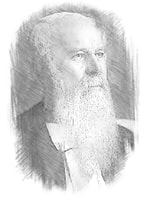 JC Ryle Files
JC Ryle Files
JC Ryle died in the first year of the 20th century. This observation he wrote could easily be said about today:
“There is an amazing ignorance of Scripture among many, and a consequent want of established, solid religion. In no other way can I account for the ease with which people are, like children, ‘tossed to and fro, and carried about by every wind of doctrine’ (Eph. 4:14.) There is an Athenian love of novelty abroad, and a morbid distaste for anything old and regular, and in the beaten path of our forefathers. Thousands will crowd to hear a new voice and a new doctrine, without considering for a moment whether what they hear is true. There is an incessant craving after any teaching which is sensational, and exciting, and rousing to the feelings. ” --JC Ryle
“There is an amazing ignorance of Scripture among many, and a consequent want of established, solid religion. In no other way can I account for the ease with which people are, like children, ‘tossed to and fro, and carried about by every wind of doctrine’ (Eph. 4:14.) There is an Athenian love of novelty abroad, and a morbid distaste for anything old and regular, and in the beaten path of our forefathers. Thousands will crowd to hear a new voice and a new doctrine, without considering for a moment whether what they hear is true. There is an incessant craving after any teaching which is sensational, and exciting, and rousing to the feelings. ” --JC Ryle
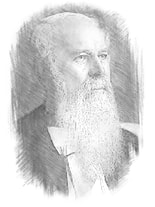 JC Ryle Files
JC Ryle Files
Many things combine to make the present inroad of false doctrine peculiarly dangerous.
--J. C. Ryle’s Warnings to the Churches [Banner of Truth, 1967], ‘Divers and Strange Doctrines’, pages 76-77, with slight editing.
- There is an undeniable zeal in some of the teachers of error: their ‘earnestness’ makes many think they must be right.
- There is a great appearance of learning and theological knowledge: many fancy that such clever and intellectual men must surely be safe guides.
- There is a general tendency to free thought and free inquiry in these latter days: many like to prove their independence of judgment, by believing novelties.
- There is a wide-spread desire to appear charitable and liberal-minded: many seem half ashamed of saying that anybody can be in the wrong.
- There is a quantity of half-truth taught by the modern false teachers: they are incessantly using Scriptural terms and phrases in an unscriptural sense.
- There is a morbid craving in the public mind for a more sensuous, ceremonial, sensational, showy worship: men are impatient of inward, invisible heart-work.
- There is a silly readiness in every direction to believe everybody who talks cleverly, lovingly and earnestly, and a determination to forget that Satan often masquerades himself ‘as an angel of light’ (2 Cor. 11:14).
- There is a wide-spread ‘gullibility’ among professing Christians: every heretic who tells his story plausibly is sure to be believed, and everybody who doubts him is called a persecutor and a narrow-minded man.
--J. C. Ryle’s Warnings to the Churches [Banner of Truth, 1967], ‘Divers and Strange Doctrines’, pages 76-77, with slight editing.
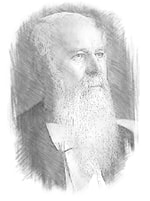 JC Ryle Files
JC Ryle Files
The plain truth is that a right knowledge of sin lies at the root of all saving Christianity. Without it such doctrines as justification, conversion, sanctification, are “words and names” which convey no meaning to the mind. The first thing, therefore, that God does when He makes anyone a new creature in Christ, is to send light into his heart, and show him that he is a guilty sinner. The material creation in Genesis began with “light,” and so also does the spiritual creation. God “shines into our hearts” by the work of the Holy Ghost, and then spiritual life begins. (2 Cor. iv. 6.) - Dim or indistinct views of sin are the origin of most of the errors, heresies, and false doctrines of the present day. If a man does not realize the dangerous nature of his soul’s disease, you cannot wonder if he is content with false or imperfect remedies. I believe that one of the chief wants of the Church in the nineteenth century has been, and is, clearer, fuller teaching about sin.
--JC Ryle; Holiness
--JC Ryle; Holiness
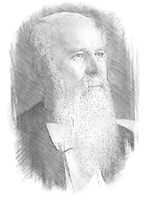 JC Ryle Files
JC Ryle Files
"You may see the deceitfulness in the wonderful proneness of men to regard sin as less sinful and dangerous than it is in the sight of God and in their readiness to extenuate it, make excuses for it and minimize its guilt.....You may see it in the long string of smooth words and phrases which men have coined in order to designate things which God calls downright wicked and ruinous to the soul....Men try to cheat themselves into the belief that sin is not quite so sinful as God says it is, and that they are not so bad as they really are."
--JC Ryle; Holiness; 1879
"You may see the deceitfulness in the wonderful proneness of men to regard sin as less sinful and dangerous than it is in the sight of God and in their readiness to extenuate it, make excuses for it and minimize its guilt.....You may see it in the long string of smooth words and phrases which men have coined in order to designate things which God calls downright wicked and ruinous to the soul....Men try to cheat themselves into the belief that sin is not quite so sinful as God says it is, and that they are not so bad as they really are."
--JC Ryle; Holiness; 1879
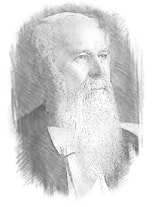 JC Ryle Files
JC Ryle Files
A genuine Gospel-faith has nothing selfish about it – it never makes a man think only of his own salvation. It stirs him up, on the contrary, to concern about the souls of others. I always suspect that those who care nothing whether their brethren are saved or not, must in reality be ignorant or thoughtless about their own state. --JC Ryle; The Character of a True Christian
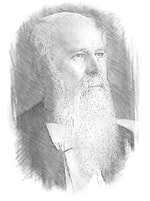 JC Ryle Files
JC Ryle Files
“Many appear to forget that we are saved and justified as sinners, and only sinners; and that we never can attain to anything higher, if we live to the age of Methuselah. Redeemed sinners, justified sinners, and renewed sinners doubtless we must be-but sinners, sinners, sinners, we shall be always to the very last. They do not seem to comprehend that there is a wide difference between our justification and our sanctification. Our justification is a perfect finished work, and admits of no degrees. Our sanctification is imperfect and incomplete, and will be so to the last hour of our life.” --JC Ryle
“Many appear to forget that we are saved and justified as sinners, and only sinners; and that we never can attain to anything higher, if we live to the age of Methuselah. Redeemed sinners, justified sinners, and renewed sinners doubtless we must be-but sinners, sinners, sinners, we shall be always to the very last. They do not seem to comprehend that there is a wide difference between our justification and our sanctification. Our justification is a perfect finished work, and admits of no degrees. Our sanctification is imperfect and incomplete, and will be so to the last hour of our life.” --JC Ryle
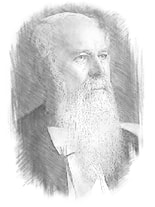 JC Ryle Files
JC Ryle Files
Let it be a settled principle in our minds that the first and chief business of the Church of Christ is to preach the Gospel. The words of Paul ought to be constantly remembered – “Christ sent me not to baptize, but to preach the Gospel” (1 Cor. 1:17). When the Gospel of Christ is faithfully and fully preached we need not fear that the sacraments will be undervalued. Baptism and the Lord’s Supper will always be most truly reverenced in those churches where the truth of Jesus is most fully taught and known. --JC Ryle: Expository Thoughts on the Gospels: John
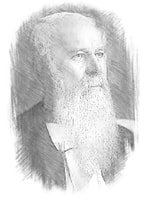 JC Ryle Files
JC Ryle Files
“What saint can be named in God’s Word, of whose life many details are recorded, who was literally and absolutely perfect? Which of them all, when writing about himself, ever talks of feeling free from imperfection? On the contrary, men like David, and St. Paul, and St. John, declare in the strongest language that they feel in their own hearts weakness and sin. The holiest men of modern times have always been remarkable for deep humility. Have we ever seen holier men than the martyred John Bradford, or Hooker, or Usher, or Baxter, or Rutherford, or M’Cheyne? Yet no one can read the writings and letters of these men without seeing that they felt themselves ‘debtors to mercy and grace’ every day, and the very last thing they ever laid claim to was perfection!” --JC Ryle
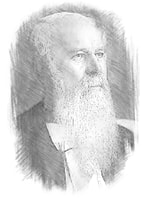 JC Ryle
JC Ryle
“There is an amazing ignorance of Scripture among many, and a consequent want of established, solid religion. In no other way can I account for the ease with which people are, like children, ‘tossed to and fro, and carried about by every wind of doctrine’ (Eph. 4:14.) There is an Athenian love of novelty abroad, and a morbid distaste for anything old and regular, and in the beaten path of our forefathers. Thousands will crowd to hear a new voice and a new doctrine, without considering for a moment whether what they hear is true. There is an incessant craving after any teaching which is sensational, and exciting, and rousing to the feelings. ” --JC Ryle
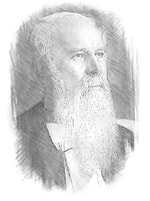 JC Ryle
JC Ryle
“He who supposes that Jesus Christ only lived and died and rose again in order to provide justification and forgiveness of sins for His people, has yet much to learn. Whether he knows it or not, he is dishonouring our blessed Lord, and making Him only a half Saviour. The Lord Jesus has undertaken everything that His people’s souls require; not only to deliver them from the guilt of their sins by His atoning death, but from the dominion of their sins, by placing in their hearts the Holy Spirit; not only to justify them, but also to sanctify them. He is, thus, not only their ‘righteousness,’ but their ‘sanctification.’ (1 Cor. 1:30.)” --JC Ryle

John was an avid sportsman and took to the field with great command. But a serious chest infection would confine him to a bed in the spring of 1837. It was during his sickness where he began to spend time reading his Bible. Shortly thereafter, in the summer, John attended a church service, hearing the preacher expound on Ephesians 2:8, “By grace are ye saved through faith, and not of yourselves, it is the gift of God.” This verse pierced John to the heart and he became a true Christian. One of his biographers said of him: “He was converted not by a tract, nor a sermon, but by the Word of God.”
March 19, 2019: Credo Magazine: Why Pastors Should Engage J.C. Ryle
Bishop J. C. Ryle died in the Lord on June 10, 1900. His close friend and fellow clergyman, Canon Richard Hobson, preached his funeral sermon. He said the following about the chief pastor of Liverpool,
[he] was great through the abounding grace of God. He was great in stature; great in mental power; great in spirituality; great as a preacher and expositor of God’s most holy Word; great in hospitality; great in winning souls to God; great as a writer of Gospel tracts; great as an author of works which will long live, great as a bishop of the Reformed Evangelical Protestant Church of England of which he was a noble defender, great as the first Bishop of Liverpool. I am bold to say that perhaps few men in the nineteenth century did so much for God, for truth, for righteousness, among the English speaking race and in the world as our late bishop.
Bishop J. C. Ryle died in the Lord on June 10, 1900. His close friend and fellow clergyman, Canon Richard Hobson, preached his funeral sermon. He said the following about the chief pastor of Liverpool,
[he] was great through the abounding grace of God. He was great in stature; great in mental power; great in spirituality; great as a preacher and expositor of God’s most holy Word; great in hospitality; great in winning souls to God; great as a writer of Gospel tracts; great as an author of works which will long live, great as a bishop of the Reformed Evangelical Protestant Church of England of which he was a noble defender, great as the first Bishop of Liverpool. I am bold to say that perhaps few men in the nineteenth century did so much for God, for truth, for righteousness, among the English speaking race and in the world as our late bishop.
May 16, 2018: 9Marks: Book Review—J. C. Ryle: Prepared to Stand Alone, by Iain Murray
One of the greatest Christian leaders to come out of England in the nineteenth century was John Charles Ryle. Famously known as “the man of granite with the heart of a child,” Ryle stands out as a towering example of Christian fortitude and pastoral excellence. Although he died more than a century ago, he still has much to say to our generation. And perhaps no one is better suited to teach us about Ryle than renowned biographer Iain Murray.
In Prepared to Stand Alone, Murray tirelessly pursues this task.
One of the greatest Christian leaders to come out of England in the nineteenth century was John Charles Ryle. Famously known as “the man of granite with the heart of a child,” Ryle stands out as a towering example of Christian fortitude and pastoral excellence. Although he died more than a century ago, he still has much to say to our generation. And perhaps no one is better suited to teach us about Ryle than renowned biographer Iain Murray.
In Prepared to Stand Alone, Murray tirelessly pursues this task.
John Charles Ryle (May 10, 1816 - June 10, 1900) was an evangelical Anglican clergyman and first Bishop of Liverpool. He was renowned for his powerful preaching and extensive tracts.
Biography
Ryle was born on May 10th, 1816 at Park House, Macclesfield, the eldest son of John Ryle MP and Susannah Ryle. His family had made their money in the silk mills of the Industrial Revolution, and were prominent members of Cheshire society. Accordingly, Ryle was educated at Eton College and then Christ Church, Oxford, where he took a congratulatory First in Greats, and a Blue in cricket.
Conversion and ordination
Ryle's family were nominal Anglicans, and until his time as an undergraduate Ryle had a similar attitude to Christianity. However, as he was due to sit his final examinations, he became seriously ill with a chest infection, and was confined to his bed. During this time he began to pray and seriously read the Scriptures. However his conversion occurred when he attended an unknown church, and arriving late, he heard the reading Ephesians 2:8-9. The force of these words hit his heart, and from that point on he was assured of his salvation.
After leaving Oxford, he returned to Macclesfield to assist his father in business and with the assumption that he would inherit the estate. However in June 1841 Ryle Senior was bankrupted, and the family was left ruined, and forced to leave Macclesfield.
With his future now in tatters, Ryle was forced to look for a profession to sustain himself, and as a last resort, he offered himself for ministry in the Church of England. He was duly accepted and ordained in December 1841 by Bishop C.R. Summner of Winchester.
Parish ministry
Ryle's first charge was as curate of the hamlet of Exbury in Hampshire, an area of a rough but sparse agricultural population, and riddled with disease. After a difficult two years, he became unwell, and was forced to spend several months recuperating. In November 1843 he moved to become the rector of St Thomas', Winchester, where he made a reputation for himself as an energetic and thorough pastor. Over a period of six months the congregation grew to well over six hundred communicants, and the church was forced to consider alternative accommodation. However Ryle was offered the living of Helmingham, Suffolk, and it was to here that he moved in 1844, where he stayed until 1861. With a congregation of some two hundred, it was here that Ryle began to read widely amongst the Reformed theologians, and produce the writings that would make him famous. It was at Helmingham that he began his series of "Expository Thoughts on the Gospels", and started his tract-writing.
Though his time at Helmingham was extremely fruitful, Ryle quarreled with the squire John Tollemache, and by 1861 he felt the need to move on. His final parish incumbency was Stradbroke, also in Suffolk, and it was from here that Ryle became nationally famed for his firm preaching and staunch defense of evangelical principles, both from the study and the platform. He wrote several well-known books, mainly based on his tracts and sermons, and often addressing issues of contemporary relevance for the Church from a Biblical standpoint. Of these, perhaps the most enduring are "Holiness" and "Practical Religion", both still in print.
Episcopate
Ryle's uncompromising evangelicalism in the face of increasing liberal and Tractarian opposition gained him many admirers, and he was fast becoming one of the leading lights of the evangelical party. He was originally recommended for the post of Dean of Salisbury, but before he was appointed the out-going Conservative Prime Minister Benjamin Disraeli offered him the position of Bishop of the newly-created Diocese of Liverpool.
Ryle moved to Liverpool in 1880, and would stay until 1900. Despite his previous ministry experience having been almost exclusively exercised within a rural context, his plain speech and distinctive principles made him a favorite amongst Liverpool's largely working-class population. He proved an active bishop, encouraging the building of more churches and missions to reach out to the growing urban communities, and generally seeking to develop the new diocese as best he could.
In common with many late Victorian bishops, Ryle was increasingly forced to deal with the tensions caused by the developing Anglo-Catholic wing of the Church of England. Of particular note is the so-called "Bell Cox Case" of 1885. Bell Cox was vicar of St. Margaret's, and a committed Ritualist. His Catholic practices soon came to the attention of several prominent evangelicals in the city, and one of them, James Hakes of the Liverpool Church Association, brought a private prosecution against Bell Cox under the Public Worship and Regulation Act of
Despite Ryle's entreaties, Bell Cox refused to moderate his behavior, and thus the case proceeded to the Chancery Court of York, where Bell Cox was found guilty of contempt of court, and imprisoned for seventeen days. Ryle's behavior in particular was criticized for his failure to exercise his legal episcopal veto over the prosecution, and his apparent willingness to allow one of his clergy to be imprisoned over matters of worship. However, an examination of letters written by Ryle from the time suggest that Ryle was by no means a supporter of such practice, yet felt it wrong to come between the law and the defendant, particularly in the case of a private prosecution. In his speech to the Liverpool Diocesan conference the same year he openly declared the imprisonment of clergy over such matters as "barbarous", hardly a note of support.
Ryle's tenure as bishop in general is remarkable for his efforts to build churches and mission halls to reach the rapidly expanding urban areas of Liverpool. Though subsequent biographers have criticised this policy, owing to figures which suggest a general decline in church attendance,[[ Link title]] it perhaps says most about Ryle's heart as an evangelist; a desire for all to hear and respond to the Gospel.
Ryle served as Bishop until March 1900, where in his eighty-fourth year, a stroke and a general decline in health forced him to retire, despite his desire to die "in harness." He retired to Lowestoft, Suffolk, however passed away on 10th June 1900. He was interred in All Saint's, Childwall, next to his third wife, Henrietta.
Bio. Taken from Theopedia
Biography
Ryle was born on May 10th, 1816 at Park House, Macclesfield, the eldest son of John Ryle MP and Susannah Ryle. His family had made their money in the silk mills of the Industrial Revolution, and were prominent members of Cheshire society. Accordingly, Ryle was educated at Eton College and then Christ Church, Oxford, where he took a congratulatory First in Greats, and a Blue in cricket.
Conversion and ordination
Ryle's family were nominal Anglicans, and until his time as an undergraduate Ryle had a similar attitude to Christianity. However, as he was due to sit his final examinations, he became seriously ill with a chest infection, and was confined to his bed. During this time he began to pray and seriously read the Scriptures. However his conversion occurred when he attended an unknown church, and arriving late, he heard the reading Ephesians 2:8-9. The force of these words hit his heart, and from that point on he was assured of his salvation.
After leaving Oxford, he returned to Macclesfield to assist his father in business and with the assumption that he would inherit the estate. However in June 1841 Ryle Senior was bankrupted, and the family was left ruined, and forced to leave Macclesfield.
With his future now in tatters, Ryle was forced to look for a profession to sustain himself, and as a last resort, he offered himself for ministry in the Church of England. He was duly accepted and ordained in December 1841 by Bishop C.R. Summner of Winchester.
Parish ministry
Ryle's first charge was as curate of the hamlet of Exbury in Hampshire, an area of a rough but sparse agricultural population, and riddled with disease. After a difficult two years, he became unwell, and was forced to spend several months recuperating. In November 1843 he moved to become the rector of St Thomas', Winchester, where he made a reputation for himself as an energetic and thorough pastor. Over a period of six months the congregation grew to well over six hundred communicants, and the church was forced to consider alternative accommodation. However Ryle was offered the living of Helmingham, Suffolk, and it was to here that he moved in 1844, where he stayed until 1861. With a congregation of some two hundred, it was here that Ryle began to read widely amongst the Reformed theologians, and produce the writings that would make him famous. It was at Helmingham that he began his series of "Expository Thoughts on the Gospels", and started his tract-writing.
Though his time at Helmingham was extremely fruitful, Ryle quarreled with the squire John Tollemache, and by 1861 he felt the need to move on. His final parish incumbency was Stradbroke, also in Suffolk, and it was from here that Ryle became nationally famed for his firm preaching and staunch defense of evangelical principles, both from the study and the platform. He wrote several well-known books, mainly based on his tracts and sermons, and often addressing issues of contemporary relevance for the Church from a Biblical standpoint. Of these, perhaps the most enduring are "Holiness" and "Practical Religion", both still in print.
Episcopate
Ryle's uncompromising evangelicalism in the face of increasing liberal and Tractarian opposition gained him many admirers, and he was fast becoming one of the leading lights of the evangelical party. He was originally recommended for the post of Dean of Salisbury, but before he was appointed the out-going Conservative Prime Minister Benjamin Disraeli offered him the position of Bishop of the newly-created Diocese of Liverpool.
Ryle moved to Liverpool in 1880, and would stay until 1900. Despite his previous ministry experience having been almost exclusively exercised within a rural context, his plain speech and distinctive principles made him a favorite amongst Liverpool's largely working-class population. He proved an active bishop, encouraging the building of more churches and missions to reach out to the growing urban communities, and generally seeking to develop the new diocese as best he could.
In common with many late Victorian bishops, Ryle was increasingly forced to deal with the tensions caused by the developing Anglo-Catholic wing of the Church of England. Of particular note is the so-called "Bell Cox Case" of 1885. Bell Cox was vicar of St. Margaret's, and a committed Ritualist. His Catholic practices soon came to the attention of several prominent evangelicals in the city, and one of them, James Hakes of the Liverpool Church Association, brought a private prosecution against Bell Cox under the Public Worship and Regulation Act of
Despite Ryle's entreaties, Bell Cox refused to moderate his behavior, and thus the case proceeded to the Chancery Court of York, where Bell Cox was found guilty of contempt of court, and imprisoned for seventeen days. Ryle's behavior in particular was criticized for his failure to exercise his legal episcopal veto over the prosecution, and his apparent willingness to allow one of his clergy to be imprisoned over matters of worship. However, an examination of letters written by Ryle from the time suggest that Ryle was by no means a supporter of such practice, yet felt it wrong to come between the law and the defendant, particularly in the case of a private prosecution. In his speech to the Liverpool Diocesan conference the same year he openly declared the imprisonment of clergy over such matters as "barbarous", hardly a note of support.
Ryle's tenure as bishop in general is remarkable for his efforts to build churches and mission halls to reach the rapidly expanding urban areas of Liverpool. Though subsequent biographers have criticised this policy, owing to figures which suggest a general decline in church attendance,[[ Link title]] it perhaps says most about Ryle's heart as an evangelist; a desire for all to hear and respond to the Gospel.
Ryle served as Bishop until March 1900, where in his eighty-fourth year, a stroke and a general decline in health forced him to retire, despite his desire to die "in harness." He retired to Lowestoft, Suffolk, however passed away on 10th June 1900. He was interred in All Saint's, Childwall, next to his third wife, Henrietta.
Bio. Taken from Theopedia

